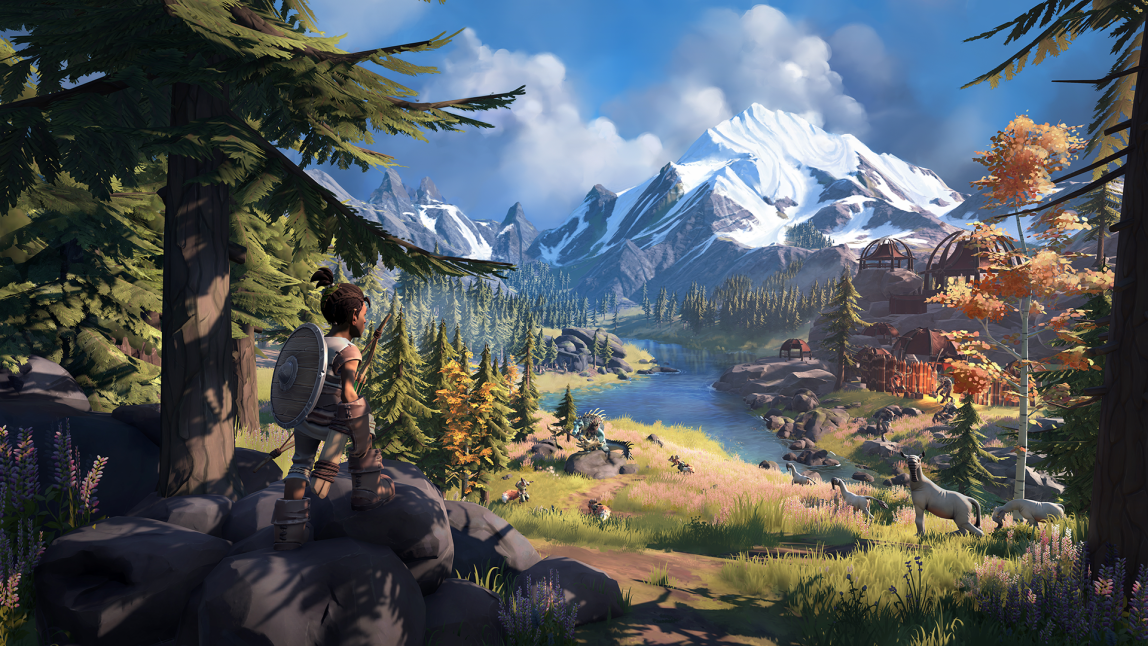
The rise of Twirlbound: Matthijs van de Laar’s path to indie studio success
03/10/2025 - 09:03
We sat down with him to discuss his journey from student to entrepreneur, the evolution of the gaming industry, and his advice for aspiring game developers.
- Stories
Why and how did you decide to join the Games programme at BUas?
Matthijs: ‘Back in high school, my friend Marc Peyré and I would often discuss games while cycling home. We realised that someone had to create the games we loved playing. We started researching and experimenting with making iPhone and iPod Touch games as a hobby. We decided to turn this passion into a career.’
‘We soon discovered that BUas offered a dedicated games programme and connected with a student already enrolled through the internet. That solidified our decision. Even before university, Marc and I experimented with game development—he focused on programming, while I handled design, visuals, and marketing. However, since we were under 18, we needed Marc’s father to officially register our first game. It was an exciting time, learning everything from scratch, often through trial and error. That problem-solving spirit still drives me today.’
‘We both applied to BUas with our portfolio and were accepted. The course reinforced our ability to figure out complex challenges independently, a skill that has been invaluable ever since.’
What stands out to you from your time at BUas?
Matthijs: ‘One of the best experiences was working with students from different disciplines. Game development isn’t a solo effort—it requires teamwork. The dynamics within student groups, learning who takes leadership roles and why, were fascinating.’
‘In our second year, Marc and I decided to establish our own company, Twirlbound. We took on small freelance projects, such as website development, to gain experience and earn some income. Registering with the Chamber of Commerce allowed us to learn about business operations in a relatively safe environment while still studying. Over time, we transitioned from small gigs to developing our own game. By then, our team had expanded to three, covering all key disciplines—programming, design, and visual arts. Game jams and smaller projects helped us hone our skills before tackling a larger game, which took much longer than expected due to our studies. Every skill we learned at BUas was applied directly to our projects.’
‘The study programme also introduced us to essential industry practices like Scrum, Agile development, and project planning. These skills were crucial in managing game production, taking part in showcases, and handling the business aspects of development alongside creating the game itself.’
What happened after you finished your studies?
Matthijs: ‘By the time we entered the graduation phase, Twirlbound was already established, and we aimed to transition to full-time development. However, gathering the right team and securing financial stability was challenging. Unlike today, final-year students couldn’t easily collaborate on a graduation project, but we managed to work on our own sections individually while still contributing to a shared game concept.’
‘After graduating, we focused on developing Pine, our first commercial game. We pursued crowdfunding in 2017, successfully raising €121,480 from 4,091 backers. In early 2018, we signed with a publisher, allowing us to expand our team to seven people. By October 2019, Pine was complete. The journey from student project to a full commercial release was long and challenging, but it was an invaluable learning experience.’
How has the games industry evolved over the years, in your perspective?
Matthijs: ‘The industry experienced a boom in 2021, but by late 2023, it had crashed, leading to mass layoffs and cancelled projects. A major factor was ballooning budgets—many projects became unsustainable. During the pandemic, there was a surge in new gamers, but as life returned to normal, that audience shrank.’
‘The trend now leans towards smaller studios with lower costs, which is more attractive to publishers and investors. At BUas, we were trained for large-scale studios, but we have adapted that knowledge for smaller teams, allowing us to create high-quality games efficiently. The industry is vast, and you only need a small niche to thrive. The era of massive projects dominating the market is shifting, making way for more sustainable and experimental development approaches.’
‘Twirlbound currently has 15 team members, all BUas graduates. The technical expertise from the university is outstanding, allowing interns to contribute immediately. As a small studio, we lack the resources for extensive training, so having capable graduates ready to work is invaluable.’
What are your plans for the future?
Matthijs: ‘We love the genre we are working in, and I personally enjoy writing our games. My role involves narrative design, scripting dialogues, structuring quests, and crafting game mechanics. I also handle production planning, budgeting, and business negotiations. It is a diverse role, but it keeps me deeply involved in the creative process.’
‘We want to speed up our development cycle. Pine took four years to complete, but we aim to release new games within two years. Advancements in tools and software enable faster production, allowing us to engage more with our audience and spend less time isolated in development.’
What advice would you give to current Games students?
Matthijs: ‘The course structure has changed, focusing more on project-based learning. While this is beneficial, some exploratory aspects have diminished. During my studies, I had to create a horror game, which wasn’t my style, but it pushed me to discover my creative voice. Students today might find themselves more confined to familiar territories. My advice: take time to explore different aspects of game development. Find what you love and develop your unique creative voice.’
‘Many students hesitate to start their own business, fearing bureaucracy and risk. However, it is more manageable than it seems. Running your own studio provides immense creative freedom, and while challenges exist, the rewards are worth it. If you are passionate about making your own games, explore the possibilities—it might be the best decision you ever make.’
For more on Twirlbound, visit twirlbound.com
Connect with Matthijs on LinkedIn